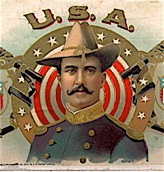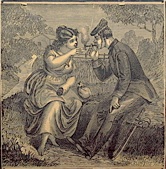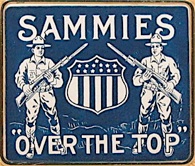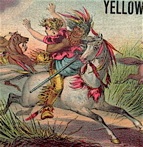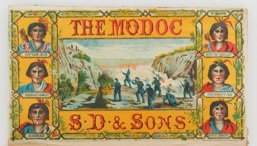A lot of folks are uncomfortable with the fact, but history leaves no doubt, that the United States has a bellicose streak. During our entire existence as a separate nation we’ve not been able to go 50 years without being involved in a war. All wars have affected cigars, some conflicts more than others. While still a British colony, war between Spain and England gave birth to the U.S. cigar industry in the 1760’s when British General Israel Putnam returned home to his farm in Connecticut with Havana tobacco seed and tens of thousands of Cuban cigars.
The short and most popular war in our history, the Spanish-American War, was cheered by the press and left citizens with feelings of pride and satisfaction. It also directly resulted in the United States taking over Cuba, Puerto Rico and the Philippines, countries that grew the finest tobacco and rolled the best cigars, right at the peak of the Golden Age of Cigars in America...a time when four of every five men smoked a few cigars a week, if not constantly. As a result, examples of cigar boxes and labels honoring participants in that War abound.
The Civil War is the second most common War illustration found on boxes, but that’s more historical accident than money-making gleam in an advertiser’s eye. The Civil War impacted the cigar industry because the demand
for taxes led to the requirement that cigars must be packed in the consumer-size boxes we love so well, whereas prior to the War 90% of cigars were sold in bulk. Too, the Civil War ended just as the boom in U.S. cigar making was beginning. Although cigars had been made here for just shy of 100 years, the mid-century development of quality cigar tobacco in Maryland, Connecticut, Massachusetts, Pennsylvania, New York, Ohio and Wisconsin made cheap domestic cigars universally available. It can’t be ignored that the War was led by a popular future President who smoked cigars incessantly, becoming a role model for the men who fought the War and the generation who grew up in its shadow. Because the War effected nearly every family from New England to Florida to California it was a common referent, but the advertising images of that sad conflict tend to be appropriately more somber than the images that sprang from the newspaper-hyped War against Spain.
World War One took place at the very end of The Golden Age, when mechanization led to the decline of the hand made small-shop cigar. Just as the Civil War encouraged generations of men to smoke cigars, World War One was a major factor in the cigarette addiction of Europe, England and the United States in the 1920’s and 1930’s, a topic to be covered elsewhere in the Museum. The long drawn out mass slaughter in nations far away didn’t appeal to advertisers, true also of World War Two, so boxes with images of those wars are in short supply.
Wars occurring before the cigar’s prime time, like the French and Indian War, the Revolutionary War and the War of 1812, all appear on cigar boxes, but were long-ago history for the the Golden Age smoker and the label designers trying to appeal to them, but George Washington, and various other statesmen,
patriots and war heroes remained popular images.
Although the American Indian was the symbol of tobacco, the ongoing conflict between the United States and the North American native population is not often the topic of cigar advertising, so those few boxes with depictions of the battles are highly prized by collectors.
The boxes below are some of the War images on cigar boxes in the National Cigar Museum’s collection. They have been selected as a representative sample and depict only wars in which the U.S. was directly involved. Many other wars were portrayed on cigar boxes, including battles from the days of the Romans, the Crusades and the Sino-Japanese War.
If you enjoy this Exhibit, you are encouraged to visit the Museum’s display of related Patriotic images found on cigar boxes.

